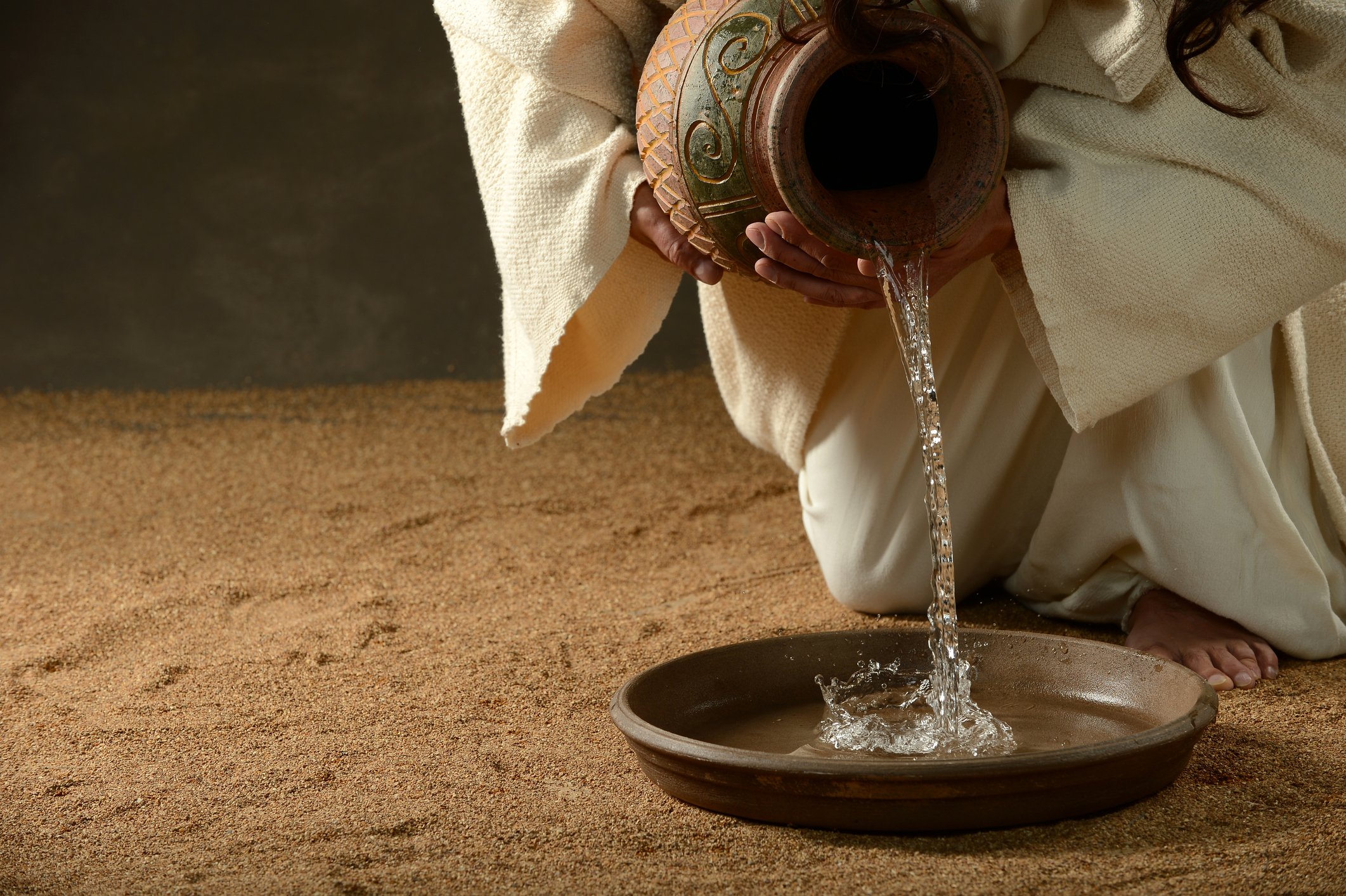When Love Stooped Down
I turned in my book manuscript to my publishing house a couple of weeks ago. The book’s title communicates something I’ve been discovering and care deeply about: That I am, that all God’s children are, Fully Beloved. And because I know such an affirmation can seem glib or disengaged from real life, I wanted the subtitle to stress how that conviction lives right in the thick of our broken and sometimes scary world. So my editor and I came up with this: Meeting God in Our Heartaches and Our Hopes.
I spend a lot of time in the book uncovering truths from the Trinity about our belovedness in God, and especially through looking at Jesus, the Son, the second person of the Divine Three.
And during this week, called Holy Week by many Christians because of its focus on the last days of Jesus’s life before death and resurrection, what I see the Son of God doing is astonishing. We often hear people use the word mystery in relation to the Trinity. But in the gut-wrenching events of these days before Easter, there’s mystery—something not easily grasped as we see how far God goes to reach us.
For I find on this poignant day, Maundy Thursday, an image that you might not first think of when trying to know the God of Trinity. Here, in the story of Jesus’s last meal before his cross, is a scene that communicates what someone called the “gleaming detail,” the seemingly ordinary (washing of dusty feet) charged with power and a jolt of meaning. A picture that makes us stand back and watch with awe.
During the evening of this last supper, there plays out a drama that helps us with the temptation, as someone put it, to diddle around with itsy-bitsy concerns, with itsy-bitsy meals and journeys and friends for itsy-bitsy years on end. What we see is uncomprehendingly deep, and for that reason wonderfully inviting.
In this dinner scene, we see an uncomfortably intimate act. We see love doing the unthinkable. Divine Glory stooping down. And love somehow prodding us to think about our own lives and hopes and heartaches.
John’s Gospel tells us that on this night almost 2000 years ago, “Jesus knew that his hour had come to depart from this world and go to the Father.” We get a glimpse of the Trinity in the background—Jesus would go back to the Father from whom he had come when in his Incarnation he did not, as an ancient hymn put it, shun the virgin’s womb.
Things do get pretty down to earth during this final meal: Jesus and his disciples sit down to eat supper in a rented room upstairs in a private home.
Simple enough.
But then there’s this: “during supper Jesus, knowing … that he had come from God and was going to God [the Trinity again] got up from the table, took off his outer robe, and tied a towel around himself. Then he poured water into a basin and began to wash the disciples' feet and to wipe them with the towel that was tied around him.” For on this, Jesus’ last night alive, he did something they would never have expected.
The disciples had seen Jesus heal the blind, embrace the marginalized poor, bring a dead man back to life. They had walked into Jerusalem to the cheers and waving palm branches of an excited crowd – a mass of people jumping and shouting like fans at a rock concert.
But now he kneels. He cradles their calloused, bunioned feet in his hands as a servant. He soothes away the grit and sweat. Foot washing was common enough, but with a person of prestige, the servants washed his or her feet and the feet of the guests.
We see the Lord of the universe, the incarnate Son of God, lay aside that glory or any prestige. Just as he will, even more profoundly, on the cross, endure not only its pain but its incomprehensibly inhumane shame.
Christians have always believed that in the crucifixion there’s great cost, as God in Jesus does for us what we cannot do for ourselves. Already we are pointed toward that. Through his self-sacrificial death, what Jesus does during the last supper will extend an offer of mercy and love to all.
God, Father, Son and Holy Spirit, does what only God could do, what only love would do. Here is what David Zahl calls the “big relief” at the heart of Christianity: Grace. Or, to return to the title of my just-completed manuscript, we see now, through what Jesus went through, that God does more than accept us with an irritated shrug, or glance our way barely tolerating us. No, we get an enacted, fully demonstrated picture that we are no less than fully beloved. God meets us this week, then, in our heartaches and our hopes, and offers what we most deeply need.
